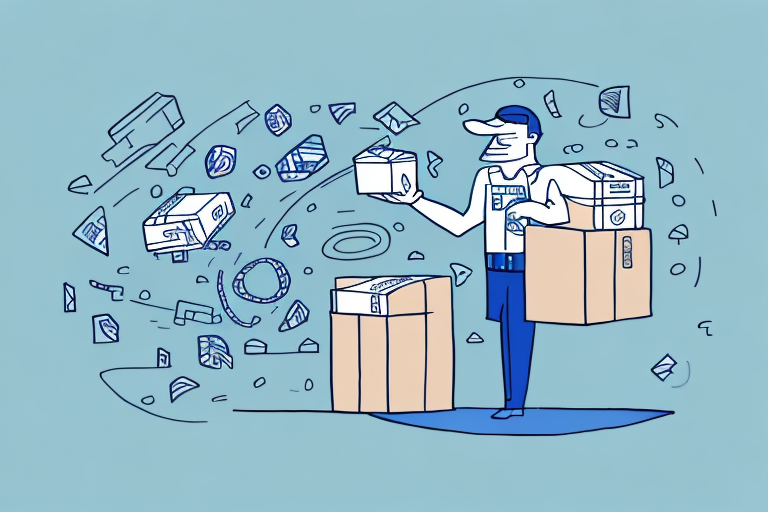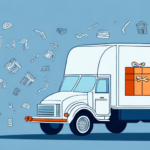Becoming an Independent Courier Express Contractor: A Comprehensive Guide
Entering the courier express industry as an independent contractor offers flexibility and the potential for substantial earnings. However, success in this competitive field requires a deep understanding of the industry, meeting regulatory requirements, and navigating various challenges. This guide provides an in-depth analysis to help you establish and thrive in your own courier express business.
Understanding the Courier Express Industry
What Are Courier Express Services?
Courier express services involve the rapid delivery of packages, documents, and other items within a specified timeframe, often same-day or next-day. These services cater to both businesses and individuals who require urgent deliveries. The industry utilizes various transportation modes, including bikes, cars, vans, and trucks, to ensure timely deliveries in urban and rural areas.
The global courier delivery services market was valued at approximately $400 billion in 2023 and is expected to continue growing due to the rise in e-commerce and online shopping trends ([Statista](https://www.statista.com/statistics/934372/number-of-packages-worldwide/)).
Key Features of Courier Express Services
- Real-Time Tracking: Most courier companies offer online tracking tools, enabling customers to monitor their shipments from pickup to delivery.
- Insurance Options: Protection against loss or damage during transit is a standard offering, providing peace of mind for valuable or sensitive items.
- Flexible Delivery Options: Services often include same-day, next-day, and scheduled deliveries to meet varying customer needs.
Becoming an Independent Courier Contractor
What Does It Mean to Be an Independent Contractor?
An independent contractor in the courier express industry operates as a self-employed individual, providing delivery services under contractual agreements with clients or courier companies. This role offers greater autonomy compared to traditional employment, allowing contractors to set their own schedules and choose their clients.
According to the Bureau of Labor Statistics, independent contractors make up a significant portion of the transportation and warehousing sector, reflecting the growing appeal of flexible work arrangements ([BLS](https://www.bls.gov/ooh/transportation-and-material-moving/home.htm)).
Advantages of Being an Independent Contractor
- Flexibility: Control over your working hours and the ability to balance multiple clients.
- Earning Potential: Opportunity to earn more by managing your workload and optimizing delivery routes.
- Diverse Experience: Working with various clients can enhance your skills and expand your professional network.
Challenges of Independence
- Financial Responsibility: Managing expenses such as vehicle maintenance, fuel, insurance, and taxes.
- Client Acquisition: Continuously seeking new clients to maintain a steady income stream.
- Risk Management: Handling liabilities related to accidents, lost packages, and other potential issues.
Starting Your Own Courier Express Business
Developing a Business Plan
A solid business plan is essential for outlining your business goals, strategies, and financial projections. Key components include:
- Market Analysis: Understanding your target market and competition.
- Services Offered: Defining the types of deliveries you will provide (e.g., same-day, overnight, international).
- Financial Planning: Estimating startup costs, ongoing expenses, and revenue projections.
Obtaining Licenses and Permits
The requirements for licenses and permits vary by location but typically include:
- Business License: Register your business with local authorities.
- Vehicle Registration: Ensure your delivery vehicle is properly registered and insured.
- Special Permits: Depending on your services, you may need permits for hazardous materials or oversized packages ([U.S. Small Business Administration](https://www.sba.gov/business-guide/launch-your-business/apply-licenses-permits)).
Choosing the Right Delivery Vehicle
Selecting an appropriate vehicle is crucial for efficiency and cost-effectiveness. Considerations include:
- Size and Capacity: Match the vehicle size to the typical package volume and types you will handle.
- Fuel Efficiency: Opt for vehicles with lower fuel consumption to reduce operating costs.
- Reliability: Choose vehicles known for durability and minimal maintenance requirements.
Establishing a Pricing Strategy
Develop a competitive and profitable pricing model by considering:
- Cost Analysis: Account for vehicle expenses, fuel, maintenance, insurance, and other overheads.
- Pricing Models: Decide whether to charge by mile, hour, package, or weight.
- Market Rates: Research competitor pricing to ensure your rates are competitive yet profitable.
Avoid underpricing, which can erode profits, and overpricing, which may deter potential customers. Transparent and fair pricing encourages customer trust and repeat business.
Marketing and Building Your Customer Base
Effective Marketing Strategies
To attract and retain customers, implement diverse marketing strategies:
- Online Presence: Develop a professional website and utilize social media platforms to reach a wider audience.
- Search Engine Optimization (SEO): Optimize your website content to appear higher in search engine results, increasing visibility.
- Networking: Build relationships with local businesses that may require regular courier services.
- Referral Programs: Encourage satisfied customers to refer new clients by offering incentives.
Building a Strong Customer Base
Fostering strong relationships with clients is key to sustaining your business. Strategies include:
- Exceptional Service: Ensure timely and reliable deliveries to build trust and loyalty.
- Customer Feedback: Actively seek and incorporate feedback to improve your services.
- Loyalty Programs: Offer discounts or rewards to repeat customers to encourage continued business.
Managing Operations Efficiently
Time Management and Logistics
Efficiently managing your time and deliveries is essential for maximizing productivity and profitability. Tips include:
- Route Optimization: Use GPS and routing software to plan the most efficient delivery routes.
- Scheduling: Allocate specific time slots for deliveries to minimize downtime and ensure punctuality.
- Inventory Management: Keep track of packages and manage deliveries to prevent errors and delays.
Utilizing Technology
Incorporate technology to enhance your operations:
- Delivery Management Software: Streamline order processing, tracking, and customer communication.
- Mobile Apps: Use apps for real-time tracking and efficient route planning.
- Automated Billing: Implement systems for quick and accurate invoicing and payment processing.
Overcoming Challenges and Competition
Dealing with Industry Competition
The courier express industry is highly competitive, with major players like FedEx, UPS, and DHL dominating the market. To stand out:
- Niche Services: Offer specialized services such as handling fragile items, medical deliveries, or eco-friendly options.
- Competitive Pricing: Provide fair and transparent pricing without compromising service quality.
- Superior Customer Service: Deliver exceptional customer experiences to differentiate your business.
Addressing Common Challenges
- Maintaining Reliability: Consistently meeting delivery deadlines is critical for customer satisfaction.
- Managing Costs: Keep a close watch on expenses to ensure profitability, especially during slow periods.
- Staying Updated: Keep abreast of industry trends and technological advancements to stay competitive.
Legal and Regulatory Considerations
Compliance with Regulations
Adhering to local, state, and federal regulations is essential to operate legally and avoid penalties. Key areas include:
- Employment Laws: Understand the distinctions between independent contractors and employees to ensure proper classification.
- Transportation Regulations: Comply with safety standards, vehicle inspections, and driver licensing requirements.
- Data Protection: Safeguard customer information and comply with data privacy laws such as the GDPR or CCPA.
Insurance and Liability
Protect your business and assets by obtaining appropriate insurance coverage:
- Commercial Vehicle Insurance: Covers damages and liabilities related to your delivery vehicle.
- General Liability Insurance: Protects against claims of bodily injury or property damage.
- Cargo Insurance: Insures the items you are delivering against loss or damage.
Conclusion
Becoming an independent courier express contractor presents a promising opportunity for those seeking flexibility and entrepreneurial success. By thoroughly understanding the industry, developing a solid business plan, implementing effective marketing strategies, and managing operations efficiently, you can establish a thriving courier express business. Stay informed about industry trends and continuously strive to provide exceptional service to ensure long-term success in this competitive field.



















